The Type-Traits Library: Type Checks
The type-traits library is part of C++11 and supports type checks, type comparisons, and type modifications at compile time. The library has over 100 functions but grows with each new C++ standard release. Today, I present the type checks.
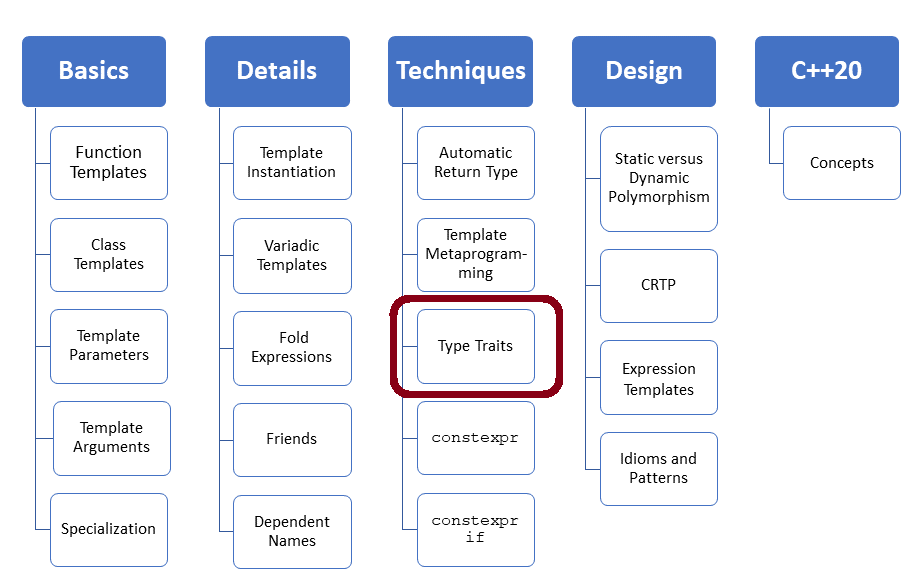
Type Checks
Each type belongs precisely to one of the fourteen primary type categories.
Primary Type Categories
Here are all of them:
template <class T> struct is_void; template <class T> struct is_integral; template <class T> struct is_floating_point; template <class T> struct is_array; template <class T> struct is_pointer; template <class T> struct is_null_pointer; template <class T> struct is_member_object_pointer; template <class T> struct is_member_function_pointer; template <class T> struct is_enum; template <class T> struct is_union; template <class T> struct is_class; template <class T> struct is_function; template <class T> struct is_lvalue_reference; template <class T> struct is_rvalue_reference;
The following program gives an example of a type fulfilling the check for each one of these primary type categories.
 Modernes C++ Mentoring
Modernes C++ Mentoring
Do you want to stay informed: Subscribe.
// primaryTypeCategories.cpp
#include <iostream> #include <type_traits> struct A { int a; int f(int) { return 2011; } }; enum E { e= 1, }; union U { int u; }; int main() { using namespace std; cout << boolalpha << '\n'; cout << is_void<void>::value << '\n'; // true cout << is_integral<short>::value << '\n'; // true cout << is_floating_point<double>::value << '\n'; // true cout << is_array<int []>::value << '\n'; // true cout << is_pointer<int*>::value << '\n'; // true cout << is_null_pointer<nullptr_t>::value << '\n'; // true cout << is_member_object_pointer<int A::*>::value << '\n'; // true cout << is_member_function_pointer<int (A::*)(int)>::value << '\n'; // true cout << is_enum<E>::value << '\n'; // true cout << is_union<U>::value << '\n'; // true cout << is_class<string>::value << '\n'; // true cout << is_function<int * (double)>::value << '\n'; // true cout << is_lvalue_reference<int&>::value << '\n'; // true cout << is_rvalue_reference<int&&>::value << '\n'; // true }
How Does this Magic Work?
This technique is based on templates and template specialization, a few conventions, and much typing. I wrote a simplified version of the function template std::integral. std::integral to check if a given type is an integral type. I ignore const or volatile qualifiers.
// integral.cpp #include <iostream> #include <type_traits> namespace rgr{ template<class T, T v> struct integral_constant { static constexpr T value = v; typedef T value_type; typedef integral_constant type; constexpr operator value_type() const noexcept { return value; } constexpr value_type operator()() const noexcept { return value; } //since c++14 }; typedef integral_constant<bool, true> true_type; // (2) typedef integral_constant<bool, false> false_type; template <class T> struct is_integral : public false_type{}; template <> struct is_integral<bool> : public true_type{}; template <> struct is_integral<char> : public true_type{}; template <> struct is_integral<signed char> : public true_type{}; template <> struct is_integral<unsigned char> : public true_type{}; template <> struct is_integral<wchar_t> : public true_type{}; template <> struct is_integral<short> : public true_type{}; template <> struct is_integral<int> : public true_type{}; // (3) template <> struct is_integral<long> : public true_type{}; template <> struct is_integral<long long> : public true_type{}; template <> struct is_integral<unsigned short> : public true_type{}; template <> struct is_integral<unsigned int> : public true_type{}; template <> struct is_integral<unsigned long> : public true_type{}; template <> struct is_integral<unsigned long long> : public true_type{}; } int main(){ std::cout << std::boolalpha << '\n'; std::cout << "std::is_integral<int>::value: " << std::is_integral<int>::value << '\n'; std::cout << "rgr::is_integral<int>::value: " << rgr::is_integral<int>::value << '\n'; // (1) std::cout << "std::is_integral<double>::value: " << std::is_integral<double>::value << '\n'; std::cout << "rgr::is_integral<double>::value: " << rgr::is_integral<double>::value << '\n'; std::cout << '\n'; std::cout << "std::true_type::value: " << std::true_type::value << '\n'; std::cout << "rgr::true_type::value: " << rgr::true_type::value << '\n'; std::cout << "std::false_type::value: " << std::false_type::value << '\n'; std::cout << "rgr::false_type::value: " << rgr::false_type::value << '\n'; std::cout << '\n'; std::cout << "std::integral_constant<bool, true>::value: " << std::integral_constant<bool, true>::value << '\n'; std::cout << "rgr::integral_constant<bool, true>::value: " << rgr::integral_constant<bool, true>::value << '\n'; std::cout << "std::integral_constant<bool, false>::value: " << std::integral_constant<bool, false>::value << '\n'; std::cout << "rgr::integral_constant<bool, false>::value: " << rgr::integral_constant<bool, false>::value << '\n'; std::cout << '\n'; }
I use in my implementation the namespace rgr and compare it with type-traits functions in the namespace std. The invocation of the function template rgr::is_integral<int>::value (1) causes the invocation of the expression rgr::true_type::value (2) because integral<int> is derived from true_type (3). rgr::true_type::value is an alias for rgr::integral_constant<bool, true>::value (2). I use in the example the static constexpr value of the class integral_constant. integral_constant is the base class of the type-traits functions.
For completeness, here is the output of the program. My implementation gives the same results, such as functions from the type-traits library.
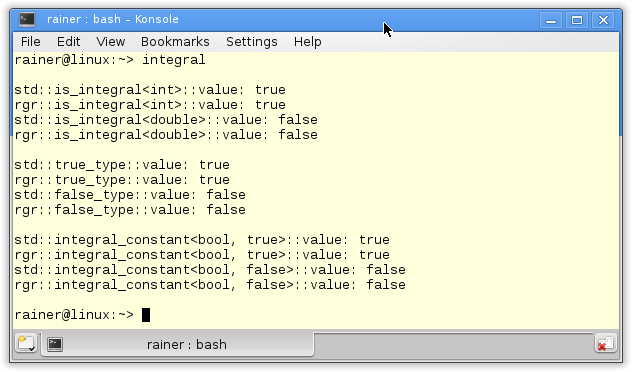
I use in my function templates rgr::is_integral ::value as return. You maybe remember this convention from my previous post, “Template Metaprogramming – How it works“? Right! My function templates rgr::is_integral are metafunctions and use template metaprogramming’s naming conventions. Since C++17, there is, for conventions, a helper class for ::value. This helper class is based on variable templates.
template< class T > inline constexpr bool is_integral_v = is_integral<T>::value
Variable templates are essentially a family of variables. Due to this helper class, you can write std::integral_v<T> instead of std::integral<T>::value. This shortened notation works for all function templates of the type traits library.
Composite type categories are then assembled from those primary type categories.
Composite Type Categories
There are seven composite type categories. The following table shows them.
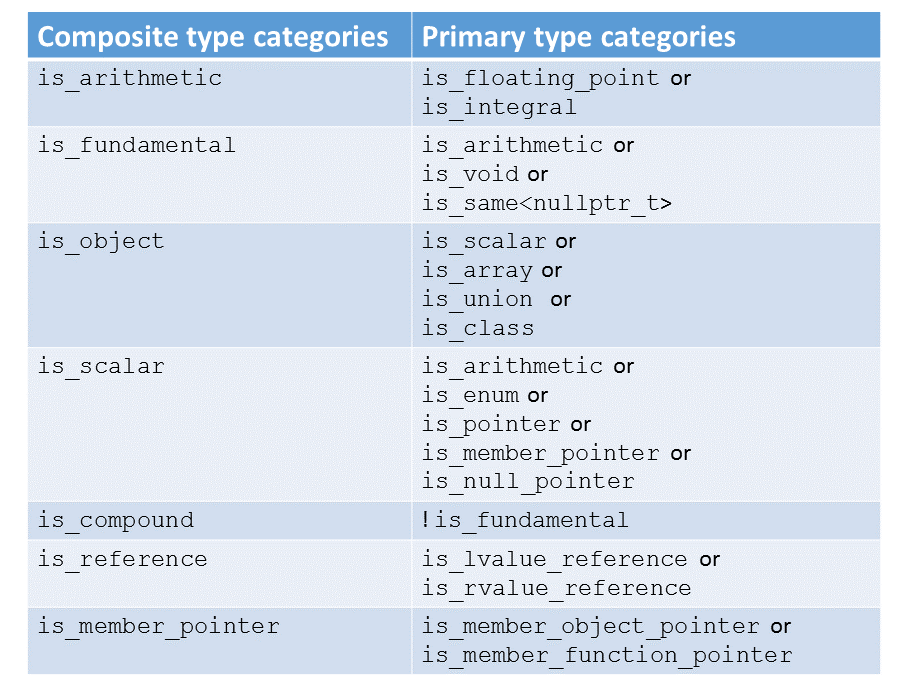
In additionally, to the primary type categories and the composite type categories, the type traits library provides type properties and type property queries. For completeness, here are they.
Type Properties
template <class T> struct is_const; template <class T> struct is_volatile; template <class T> struct is_trivial; template <class T> struct is_trivially_copyable; template <class T> struct is_standard_layout; template <class T> struct is_empty; template <class T> struct is_polymorphic; template <class T> struct is_abstract; template <class T> struct is_final; template <class T> struct is_aggregate; template <class T> struct is_signed; template <class T> struct is_unsigned; template <class T> struct is_bounded_array; template <class T> struct is_unbounded_array; template <class T> struct is_scoped_enum; template <class T, class... Args> struct is_constructible; template <class T> struct is_default_constructible; template <class T> struct is_copy_constructible; template <class T> struct is_move_constructible; template <class T, class U> struct is_assignable; template <class T> struct is_copy_assignable; template <class T> struct is_move_assignable; template <class T, class U> struct is_swappable_with; template <class T> struct is_swappable; template <class T> struct is_destructible; template <class T, class... Args> struct is_trivially_constructible; template <class T> struct is_trivially_default_constructible; template <class T> struct is_trivially_copy_constructible; template <class T> struct is_trivially_move_constructible; template <class T, class U> struct is_trivially_assignable; template <class T> struct is_trivially_copy_assignable; template <class T> struct is_trivially_move_assignable; template <class T> struct is_trivially_destructible; template <class T, class... Args> struct is_nothrow_constructible; template <class T> struct is_nothrow_default_constructible; template <class T> struct is_nothrow_copy_constructible; template <class T> struct is_nothrow_move_constructible; template <class T, class U> struct is_nothrow_assignable; template <class T> struct is_nothrow_copy_assignable; template <class T> struct is_nothrow_move_assignable; template <class T, class U> struct is_nothrow_swappable_with; template <class T> struct is_nothrow_swappable; template <class T> struct is_nothrow_destructible; template <class T> struct has_virtual_destructor; template <class T> struct has_unique_object_representations;
Many of the meta-functions like std::is_trivially_copyable have trivially in their name. That means that the compiler provides this method. Requesting a method from the compiler with the keyword default is also trivial.
Type Property Queries
template <class T> struct alignment_of; template <class T> struct rank; template <class T, unsigned I = 0> struct extent;
What’s next?
Did you notice the function std::is_same in the composite type category std::is_fundamental? std::is_same is it special because it provides type comparisons at compile time? I will write about type comparison at compile time in my next post.
Thanks a lot to my Patreon Supporters: Matt Braun, Roman Postanciuc, Tobias Zindl, G Prvulovic, Reinhold Dröge, Abernitzke, Frank Grimm, Sakib, Broeserl, António Pina, Sergey Agafyin, Андрей Бурмистров, Jake, GS, Lawton Shoemake, Jozo Leko, John Breland, Venkat Nandam, Jose Francisco, Douglas Tinkham, Kuchlong Kuchlong, Robert Blanch, Truels Wissneth, Mario Luoni, Friedrich Huber, lennonli, Pramod Tikare Muralidhara, Peter Ware, Daniel Hufschläger, Alessandro Pezzato, Bob Perry, Satish Vangipuram, Andi Ireland, Richard Ohnemus, Michael Dunsky, Leo Goodstadt, John Wiederhirn, Yacob Cohen-Arazi, Florian Tischler, Robin Furness, Michael Young, Holger Detering, Bernd Mühlhaus, Stephen Kelley, Kyle Dean, Tusar Palauri, Juan Dent, George Liao, Daniel Ceperley, Jon T Hess, Stephen Totten, Wolfgang Fütterer, Matthias Grün, Phillip Diekmann, Ben Atakora, Ann Shatoff, Rob North, Bhavith C Achar, Marco Parri Empoli, Philipp Lenk, Charles-Jianye Chen, Keith Jeffery, Matt Godbolt, and Honey Sukesan.
Thanks, in particular, to Jon Hess, Lakshman, Christian Wittenhorst, Sherhy Pyton, Dendi Suhubdy, Sudhakar Belagurusamy, Richard Sargeant, Rusty Fleming, John Nebel, Mipko, Alicja Kaminska, Slavko Radman, and David Poole.
| My special thanks to Embarcadero |  |
| My special thanks to PVS-Studio |  |
| My special thanks to Tipi.build |  |
| My special thanks to Take Up Code |  |
| My special thanks to SHAVEDYAKS |  |
Modernes C++ GmbH
Modernes C++ Mentoring (English)
Rainer Grimm
Yalovastraße 20
72108 Rottenburg
Mail: schulung@ModernesCpp.de
Mentoring: www.ModernesCpp.org
Modernes C++ Mentoring,


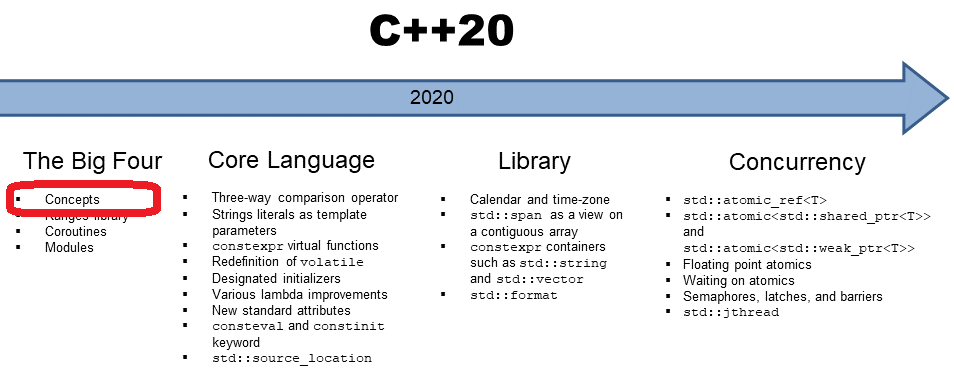
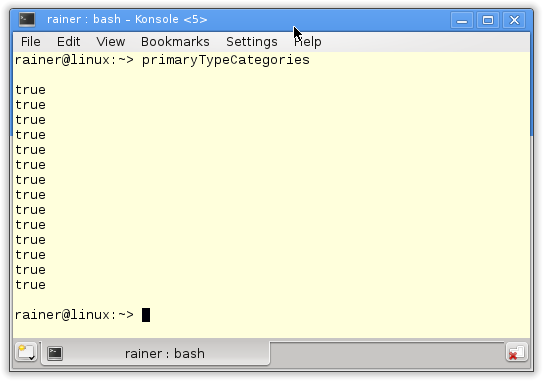
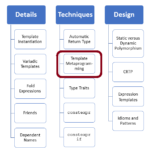

Leave a Reply
Want to join the discussion?Feel free to contribute!